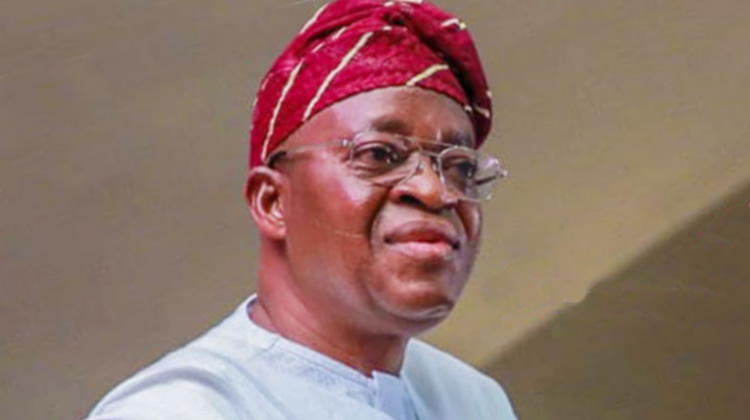Nigeria’s Campaign for IMO Council Seat Gains Momentum with High-Level Engagements at UN Ocean Conference
Adegboyega Oyetola, Nigeria’s Minister of Marine and Blue Economy, spearheaded a diplomatic offensive at the 2025 United Nations Ocean Conference in Nice, France, rallying support for Nigeria’s bid for a Category C seat on the International Maritime Organisation (IMO) Council. The Minister engaged in strategic discussions with leaders from several island nations, emphasizing Nigeria’s commitment to representing the interests of developing countries, vulnerable coastal states, and small island developing states (SIDS) within the global maritime arena. These meetings signify Nigeria’s proactive approach to building alliances and fostering collaboration with nations sharing similar maritime challenges and aspirations.
Oyetola’s engagements included meetings with key figures such as the Prime Minister of Papua New Guinea, James Marape; the Minister of Sustainable Development, Environment, Climate Action and Constituency Empowerment of Saint Kitts and Nevis, Joyelle Clarke; and the Minister of Home Affairs, Climate Change and Environment of Tuvalu, Maina Vakafua Talia. These discussions underscored Nigeria’s recognition of the interconnectedness of maritime issues and the importance of collaborative efforts to address shared concerns such as climate change, ocean governance, and sustainable blue economic development. By engaging directly with island nations, Nigeria demonstrated its commitment to building bridges and fostering a spirit of partnership within the global maritime community.
Central to Nigeria’s campaign is the message that its pursuit of an IMO Council seat transcends mere ambition. Oyetola articulated Nigeria’s desire to amplify the voices of underrepresented nations in global maritime decision-making. He emphasized that Nigeria would act as a reliable advocate for stronger global commitments to maritime decarbonization, echoing the global call for sustainable shipping practices and the reduction of greenhouse gas emissions from the maritime sector. This commitment aligns with the broader international agenda of addressing climate change and promoting environmentally responsible maritime activities.
The establishment of the Ministry of Marine and Blue Economy under President Bola Tinubu served as a cornerstone of Oyetola’s message, showcasing Nigeria’s renewed focus on sustainable ocean governance and the blue economy. This institutional development, Oyetola argued, underscores Nigeria’s commitment to harnessing the potential of its marine resources while ensuring environmental sustainability and building resilience against the impacts of climate change. By highlighting this national initiative, Oyetola reinforced Nigeria’s dedication to the principles of responsible ocean management and sustainable blue economic growth.
Beyond seeking individual endorsements, Oyetola extended an offer of partnership to the island nations, emphasizing the potential for mutually beneficial collaboration between African coastal states and SIDS. He envisioned an IMO Council that actively champions the interests of vulnerable nations, pledging that Nigeria would leverage its voice, vote, and regional influence to advocate for the priorities of developing countries. This proactive approach signifies Nigeria’s intention to play a constructive role within the IMO Council, fostering inclusivity and ensuring that the concerns of all member states are adequately addressed.
Nigeria’s proposed agenda within the IMO Council includes advocating for a more equitable maritime regulatory framework that acknowledges disparities in national capacities, promotes accessible climate-smart shipping technologies, and fosters practical cooperation in developing sustainable blue economies. Oyetola emphasized the importance of supporting developing nations in their efforts to adopt sustainable shipping practices and transition towards a greener maritime sector. He highlighted the need for accessible technologies and capacity-building initiatives to enable developing countries to effectively participate in the global effort to decarbonize shipping and promote sustainable ocean governance. As the IMO Council elections draw near, Nigeria is positioning itself as a Category C candidate dedicated to inclusivity, equity, and climate-resilient maritime development in a world increasingly interconnected and environmentally vulnerable. The Minister’s diplomatic efforts at the UN Ocean Conference signal Nigeria’s determination to secure a seat on the IMO Council and actively contribute to shaping the future of global maritime governance.


